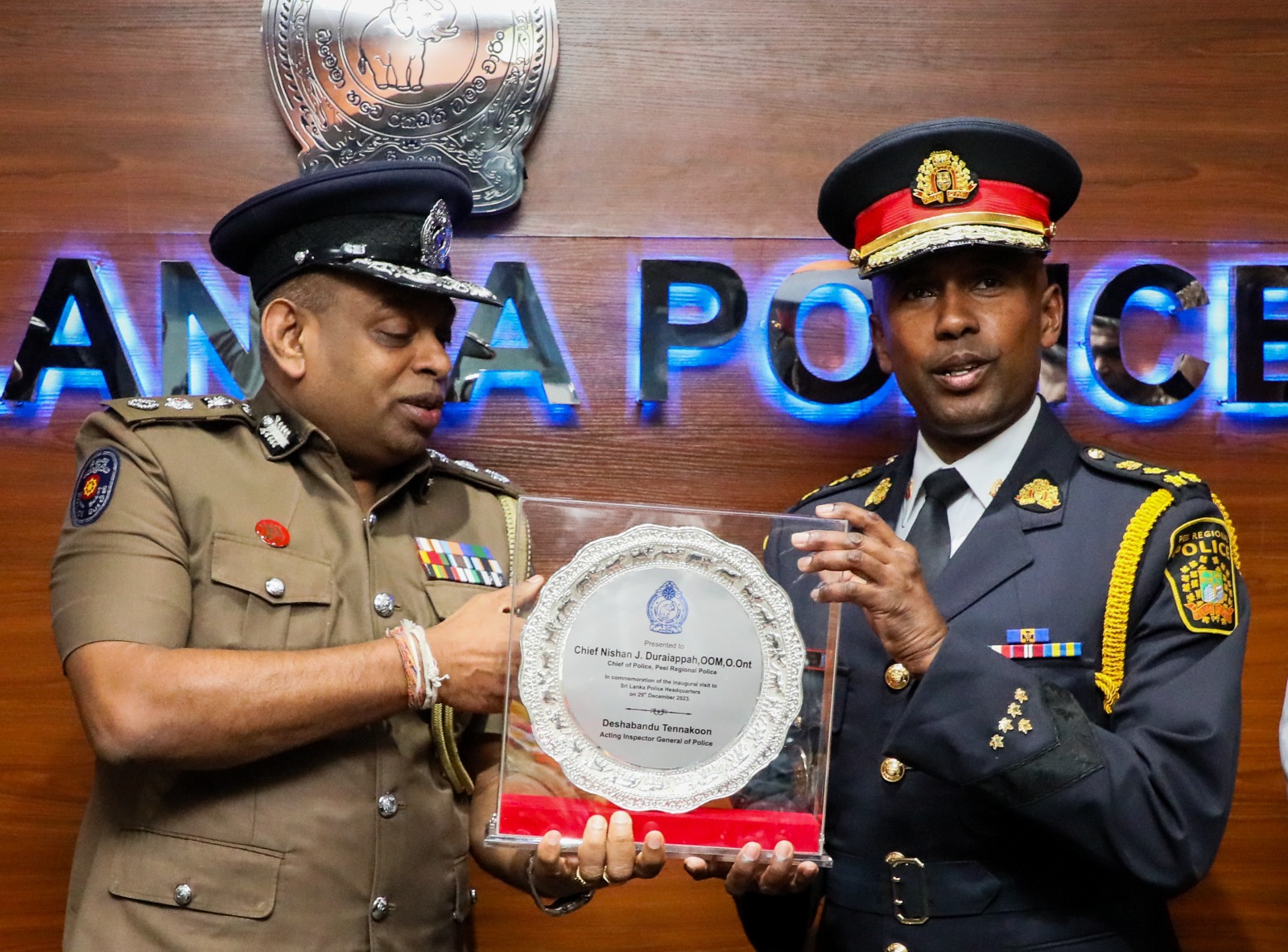Nishan Duraiappah, the Chief of Peel Regional Police, was aware of a Supreme Court ruling that found Sri Lanka’s police chief had personally participated in torture, and still decided to meet him in Colombo, according to a report in Global News.
The Canadian police chief sparked controversy with a visit to Sri Lanka in December 2023, where he discussed “cooperation” with its notorious police force and visited the office of Deshabandu Tennakoon. The visit came just weeks after Sri Lanka’s Supreme Court delivered a judgement holding Tennakoon personally responsible for torture and detailed how he had taken part in beating a man in custody.
“The Government of Canada did not organize the visit, which was considered a personal visit,” an RCMP spokesperson said in response to questions from Global News.
“However, given the RCMP’s close working relationship with Peel Regional Police, the RCMP Liaison Officer for Sri Lanka offered to facilitate Chief Duraiappah with arrangements involving police agencies in Sri Lanka.”
“Information was provided to Chief Duraiappah for his situational awareness about recent developments in Sri Lanka, including the Sri Lankan Supreme Court’s ruling on Chief Tennakoon,” the RCMP added.
According to the Supreme Court judgement, Tennakoon had personally visited the persons detained in a “torture chamber” for a “brief session of torture”. The court also noted an affidavit from a victim that Tennakoon had “beat the Petitioner with a ‘three-wheel rubber band’ after stripping him naked and ordering him to rub Siddhalepa on his genitalia”.
The RCMP confirmation that Duraiappah was aware of the ruling, means that the Peel police chief decided to continue with his engagement despite knowing the Tennakoon’s grisly record.

Duraiappah receives a plaque commemorating his visit from Tennakoon.
Speaking to Global News, Tamil Guardian editor Dr Thusiyan Nandakumar said the visit to the Sri Lankan police headquarters raises questions about judgement.
“When a senior Canadian official goes to meet with forces accused of such egregious crimes … to see something like that take place, it was very disconcerting.”
“To see someone of (Duraiappah’s) stature receive a guard of honour from that very same institution that’s responsible for so many abuses was shocking, to say the least,” Nandakumar added. “I think an apology is needed.”
Tennakoon’s recent appointment as police chief shows “much about how law enforcement authorities in the island operate with impunity,” Neil DeVotta, an expert on South Asia and politics professor at Wake Forest University in North Carolina, told Global News.
“(It’s) very harmful to me as a Canadian, as someone who grew up in the region of Peel, and all the people who continue to live in Peel and who identify as Tamil, in my opinion,” said Rathika Sitsabaiesan, a former MP and Canada’s first Tamil member of Parliament.
See more from Global News here.
We need your support
Sri Lanka is one of the most dangerous places in the world to be a journalist. Tamil journalists are particularly at threat, with at least 41 media workers known to have been killed by the Sri Lankan state or its paramilitaries during and after the armed conflict.
Despite the risks, our team on the ground remain committed to providing detailed and accurate reporting of developments in the Tamil homeland, across the island and around the world, as well as providing expert analysis and insight from the Tamil point of view
We need your support in keeping our journalism going. Support our work today.
For more ways to donate visit https://donate.tamilguardian.com.

